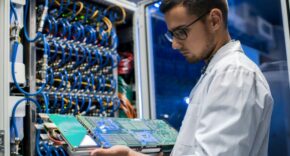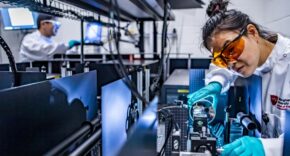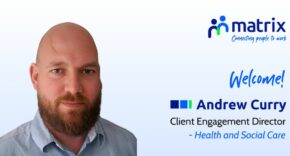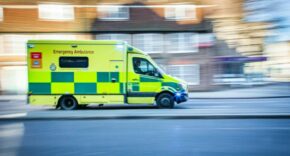
London, 17 January 2025 – Medical device company Acurable has today been named as ‘one to watch’ in the inaugural edition of The Sunday Times 100 Tech, showcasing Britain’s fastest-growing private technology companies.
Acurable develops user-friendly wearable medical devices intended to be used by patients at home, making diagnosis faster and freeing up clinician time.
Its first device is the AcuPebble, which builds upon over a decade of pioneering research conducted at Imperial College London to enable fully remote diagnosis of sleep apnoea. Obstructive sleep apnoea (OSA) is one of the most common serious respiratory disorders, affecting around 10 million people in the UK — of which 85% remain undiagnosed.
The AcuPebble device was recommended for fully remote diagnosis by the National Institute for Health and Care Excellence (NICE) in December. This means clinical guidelines now support the use of this pioneering technology, allowing NHS patients to be tested for sleep apnoea remotely. Smaller than a watch face, the device requires no wires or technical expertise to use, making it remarkably different from the traditional testing method, which is complex and involves patients being hooked up to dozens of wires and sensors.
By allowing patients to be tested at home, the AcuPebble device provides equitable access to diagnosis — patients no longer need to take time off work or caregiving responsibilities, travel long distances, or endure extended waiting times for their diagnosis.
Professor Esther Rodriguez-Villegas, inventor of the AcuPebble technology, and founder and CEO of Acurable, comments: “We are thrilled to receive this recognition from The Sunday Times 100 Tech, which is testament to our team’s hard work and dedication. Our inclusion will help to raise awareness of our mission to develop user-friendly wearable technology that enables faster and more accurate diagnosis of common medical conditions.
“It tops off an exciting few months for Acurable, with NICE recently recommending AcuPebble for fully-remote diagnosis of sleep apnoea. Our device demonstrates how technology can create a more efficient healthcare system that benefits both patients and clinicians.”












